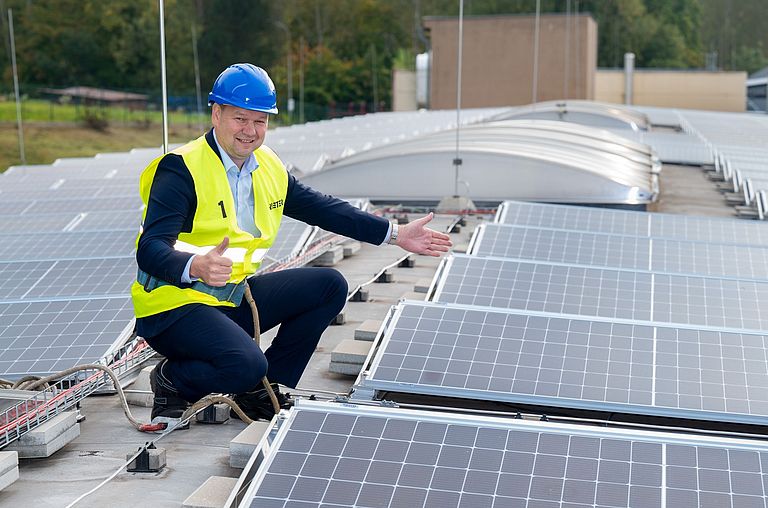Planet

Technology from Rieter allows spinning mills to produce yarn with minimal resources. Energy consumption per kilogram of yarn has been reduced significantly in recent decades.

Climate
Climate change is threatening lives and livelihoods. The fashion industry and with it the textile industry are accountable for a significant part of carbon emissions. Energy efficiency has long been a hallmark of Rieter spinning systems. As part of the textile value chain, Rieter is stepping up its focus on energy efficiency and setting measurable targets for 2030. When it comes to energy, less is definitely more.

Circularity
The traditional linear production and consumption model of take-make-waste needs to change. Currently only 1% of textiles are re-used in a closed-loop system where they are transformed into products of equal value. 73% of used clothing ends up in landfill. It is time to close the loop. Customers use Rieter’s complete recycling systems and solutions and leverage Rieter’s know-how to develop breakthrough yarns that are sustainable and circular.

Climate Commitment
From Winterthur to Wing, and from Usti to Changzhou, Rieter is expanding its solar power capacity across company-owned sites globally. In 2024, Rieter committed to achieving net-zero greenhouse gas emissions by 2040 in line with the Science Based Targets initiative.
Progress 2024
The lower sales and production volumes in financial year 2024 resulted in a reduction in absolute numbers of the following key performance indicators:
Energy consumption (-28.4 percent), greenhouse gas emissions (GHG emissions) scope 1 and 2 (-32.6 percent), water withdrawal (-21.3 percent) and waste generated (-23.8 percent). Although this raised the intensity rate for the relevant environmental key performance indicators, Rieter was able to achieve all intensity targets in 2024.
- The share in renewable energy consumption increased by 5.7 percentage points to 28.6 percent. Rieter is currently developing a plan to switch consumption of purchased electricity, gas and crude oil to 100 percent renewable sources by 2030.
- In 2024, Rieter began to calculate and report initial scope 3 GHG emissions. Total GHG emissions (scopes 1, 2 market-based, and 3) amount to 4 246 369.5 t CO2e. The use of products sold in the scope 3 category 11 has the largest impact on Rieter’s GHG emissions at 4 100 000 t CO2e or 96.6 percent. In 2025, Rieter aims to start development of measures to reduce GHG emissions in this category.
- In 2024, the recycling rate decreased by 7.9 percentage points to 83.4 percent, due to one-time effects from the office relocation to the Campus in Winterthur (Switzerland).
- 2025: Rieter plans to develop new environmental targets for 2030, improve GHG emission calculation of scope 3 and work on the financial quantification of climate-related risks linked to TCFD. The company’s net zero roadmap 2040 is under development.